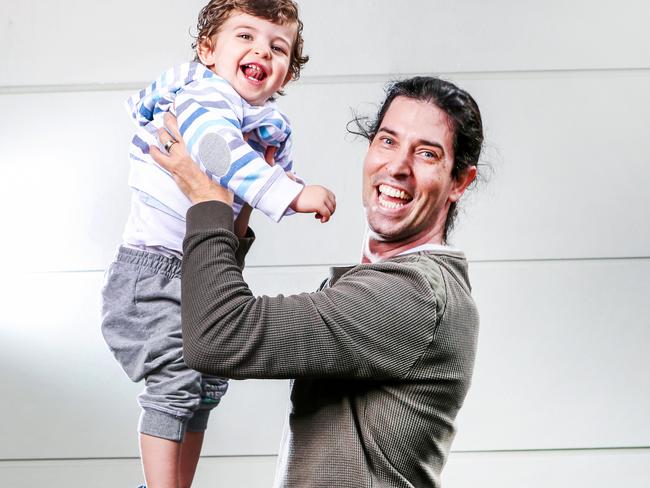Dads’ play with tots helps build self-control in later years
Little kids who play rough-and-tumble with their dads have an advantage when they get older, a new study has revealed.
LITTLE kids who play rough-and-tumble with their dads grow up in more control of their behaviour and emotions, a new study has revealed.
Researchers from the University of Cambridge tested whether play with their father had a different impact on the development of children under three than play with their mother.
Breast milk superpowers boosted by exercise
Little Mia and Carrie’s stories of bravery a warning for others
Nurses ‘insulted’ over AMAQ’s ‘bargain basement’ health claim
Parent-child play in the first years of life is known to support essential social, cognitive and communication skills, but most research focuses on mothers and infants
The academics from the Faculty of Education, in collaboration with the LEGO Foundation, found that while there are many similarities between fathers and mothers, fathers engage in more physical play even with the youngest children, opting for activities such as tickling, chasing, and piggyback rides.
This helps children learn to control their feelings.
It may also make them better at regulating their own behaviour later on as they enter settings where those skills are important, especially school.
University of Cambridge professor of play in education, development and learning Paul Ramchandani said: “Physical play creates fun, exciting situations in which children have to apply self-regulation.

“You might have to control your strength, learn when things have gone too far, or maybe your father steps on your toe by accident and you feel cross.
“It‘s a safe environment in which children can practise how to respond.
“If they react the wrong way they might get told off, but it’s not the end of the world, and next time they might remember to behave differently.”
Ben McHutchison loves to play with his two-year-old son Ivar.
“We play a bit rough and I try to teach him when enough is enough and he needs to return to more quiet time,” Mr McHutchison said.
“He knows I’m a safe place so he is not scared of a little rough-and-tumble, but he just has to see my face and then he realises it’s time to stop.
“It’s a learning curve to understand boundaries.”

